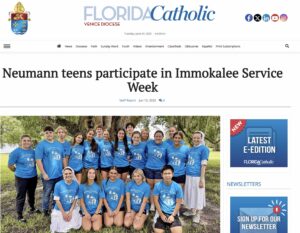The spirit of giving comes alive in November and December.
The joy of the holiday season certainly fuels that generosity, but year-end giving also generates opportunities for significant tax savings.
Annual income tax filings are becoming more complex every year, though, and donors often question what’s tax deductible and what is not.
The rules for monetary donations are fairly clear. You can give to an organization registered as a 501(c)(3) nonprofit through the IRS and obtain a tax receipt.
Material, tangible donations, however, aren’t as clear-cut. You may still donate items to a 501(c)(3) and request a receipt, but the process of valuing those items is highly subjective.
Got some spare time on your hands? The IRS produces a publication titled “Determining the Value of Donated Property.” Unfortunately, the 15-page, 15,000-word guide hardly qualifies as light reading material.
Rather than wading through that federal tome, below is a simple three-step process to making year-end material donations:
Step 1: Choose an organization to support
Local nonprofits serve a variety of charitable causes, including education, youth, seniors, poverty, health care, hunger, the environment, animal welfare, human services, veterans, arts, culture and more. The IRS, GuideStar and Charity Navigator each offer search functions to identify local nonprofits that align with your interests.
Step 2: Choose items of value that organizations will accept
Some nonprofits operate resale stores and resource centers that offer opportunities to “upcycle” items of value. That is the key – donating items of value, such as furniture, home décor, kitchenware, artwork, lamps, linens, books, clothing and fashion accessories.
Step 3: Calculate fair market value
This is the most difficult part. Fair market value, according to the IRS, is “the price that property would sell for on the open market.” A leather sofa, for example, might have retailed for $2,000 in a retail store five years ago. That was its fair market value at the time.
However, as a used sofa, its value has declined. The best way to determine its fair market value today is by visiting a nonprofit’s resale shop or thrift store to see the price of a comparable sofa. That would be the fair market value.
An item’s fair market value is almost always lower than its original retail price, oftentimes significantly lower. It’s not unreasonable for that $2,000 sofa to be priced at $200 in a resale shop – it still has value.
However, if that sofa had cuts and stains in the fabric, a funky odor and was missing a leg, the value is likely $0. The law is clear about what constitutes a tax-deductible donation.
“You cannot take an income tax charitable contribution deduction for items unless they are in ‘good used condition or better.’” Essentially, the government is saying that low-quality donations are not eligible for deductions.
Here is a general guideline: if you would not purchase an item or give it to a friend because it’s in poor condition or out of style, chances are no one else wants it, either – including the nonprofit. That’s why it has no value in the government’s eyes.
Not every item depreciates, though. The IRS makes special mention of certain types of non-cash donations that hold their value or even appreciate in worth, including:
• Antiques
• Collectibles
• Jewelry and gems
• Artwork
• Real estate
• Stocks and bonds
• Life insurance
• Annuity plans
• Patents
In cases where donations have a high value, such as original paintings, vehicles or vacant land, it’s helpful to consult with an accountant, tax attorney or qualified appraiser. Their expertise will help value donations and will certainly come in handy if you’re audited by the IRS.
Not everyone has the financial means to contribute to our nonprofit of choice, but we all have items of value that we can donate. Charitable organizations can use these items or resell them, and ultimately advance their missions.
With Dec. 31 approaching, it’s time to consider donating to your favorite charity. And don’t forget to take home your tax receipt!
– By Greethel Leon, Store Manager of Guadalupe Resale Shop






